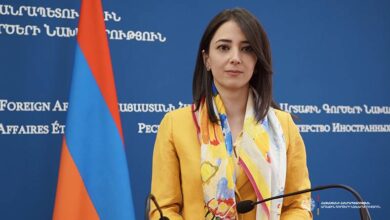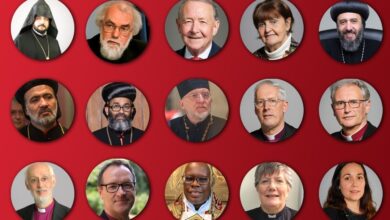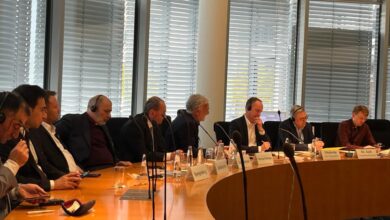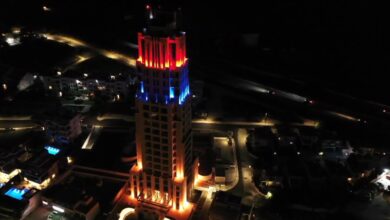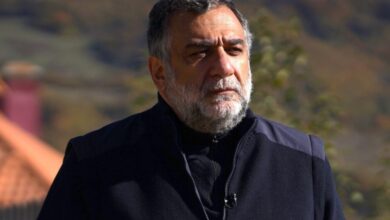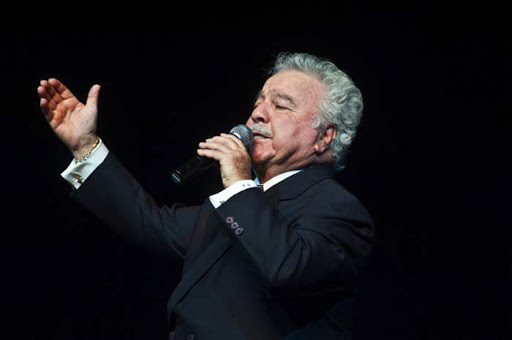
Armenian folk and liturgical singer Onnik Dinkjian has been granted the prestigious 2020 National Endowment for the Arts National Heritage Fellowship.
As part of the National Endowment for the Arts’ work to support and celebrate the rich traditional arts heritage of the US, the agency is granting lifetime honor awards of $25,000 are given in recognition of both artistic excellence and efforts to sustain cultural traditions for future generations.
“Each year the Heritage Fellowships highlight the distinct living traditions of communities around our nation, as well as how our fellows instill a sense of pride, beauty, and cultural continuity through their art,” said Mary Anne Carter, chairman of the National Endowment for the Arts. “The National Endowment for the Arts is pleased to recognize these outstanding artists with a National Heritage Fellowship.”
The National Heritage Fellowships are the nation’s highest honor in the folk and traditional arts. Including the 2020 class, the Arts Endowment has awarded 449 National Heritage Fellowships, recognizing artists working in more than 200 distinct art forms, including bluesman B.B. King, Cajun fiddler and composer Michael Doucet, sweetgrass basketweaver Mary Jackson, cowboy poet Wally McRae, Kathak dancer and choreographer Chitresh Das, and gospel and soul singer Mavis Staples.
Fellowship recipients are nominated by the public, often by members of their own communities, and then judged by a panel of experts in the folk and traditional arts. The panel’s recommendations are reviewed by the National Council on the Arts, which sends its recommendations to the Arts Endowment chairman, who makes the final decision.
Onnik Dinkjian is one of the most beloved and influential Armenian singers in America. Four generations have listened to his recordings and have treasured his singing at Armenian concerts, dances, weddings, and church services throughout the United States. Dinkjian’s tenor voice is soothing and expressive, conveying both the utter joy and passions of his Armenian heritage and the deep sorrow of its painful history.
Dinkjian was born in 1929 in Paris, France. His parents, born in Dikranagerd (Diyarbekir), Turkey, were survivors of the 1915 Armenian Genocide, and died when he was an infant. His godparents, also survivors of the genocide from Dikranagerd, adopted him and they immigrated to America in 1946. The Armenian dialect from Dikranagerd is unique and Dinkjian is one of the last remaining Armenians who speaks and understands it, and perhaps the last who sings in this endangered dialect.
Dinkjian’s earliest musical experiences were in the Armenian Church, where he became a featured soloist. Upon joining the U.S. Army in 1952, he became soloist of the famed Winged Victory Chorus, which entertained the troops throughout Europe during the Korean War.
Apart from the sacred music of the Armenian Church, Dinkjian’s repertoire consists of mainly folk and popular songs from the Anatolian (Eastern Turkey) villages, Armenia, and the Armenian Diaspora. Dinkjian is also a composer and lyricist, whose songs have become standards in the American-Armenian community.
Dinkjian made his first recording in 1948 on the Bat Masian label (78 rpm), followed by subsequent 78s, 45s, LPs, and CDs. His recordings quickly became bestsellers in the American-Armenian communities, which resulted in decades of live performances. Much of the repertoire heard at Armenian functions in America was learned from Onnik Dinkjian. He has continuously and generously spent time with young American-Armenian musicians, encouraging them to treasure their cultural identity by sharing their talent. Specifically, he has written out hard-to-decipher lyrics and guided young singers with lyric translations and proper diction.
In 2009, Dinkjian was invited to do a concert in Diyarbekir, dramatically bringing the local Armenian folk songs back to their place of origin after having kept them alive for generations in America. Although there were virtually no Armenians present, he was welcomed and honored by the Kurdish and Turkish communities, as well as by the mayor. A documentary film titled Garod (Longing) was produced by Kurdish and Turkish filmmakers in recognition of this historic event.
Dinkjian has performed at the Library of Congress, the Smithsonian Folklife Festival, and the Kennedy Center’s Millennium Stage.




